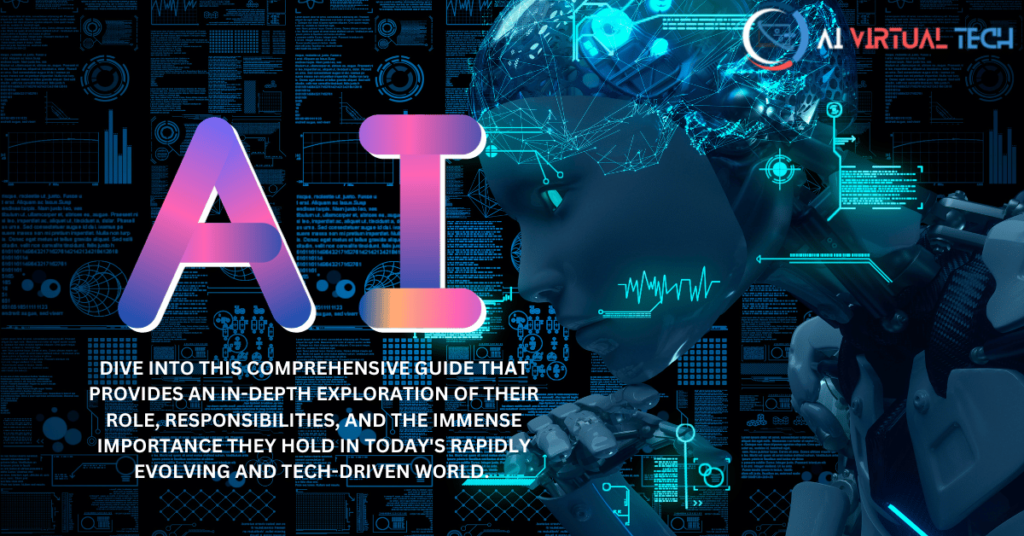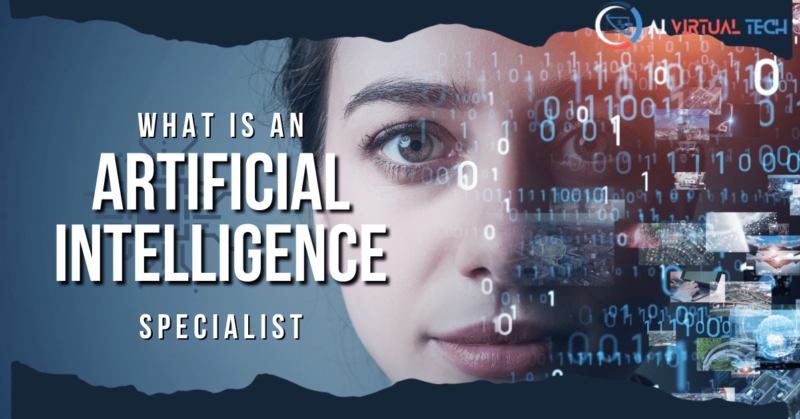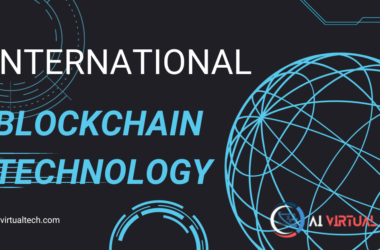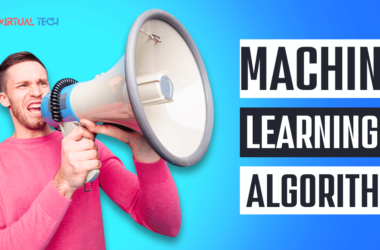What is an Artificial Intelligence (AI) Specialist? Dive into this comprehensive guide that provides an in-depth exploration of their role, responsibilities, and the immense importance they hold in today’s rapidly evolving and tech-driven world. Gain insights into how these specialists leverage cutting-edge technologies and advanced algorithms to develop innovative solutions and drive transformative change across various industries. Discover the fascinating world of Artificial Intelligence and uncover the limitless possibilities that come with being an Artificial Intelligence Specialist.
What is an Artificial Intelligence Specialist?
- An Artificial Intelligence Specialist is a professional engineer who designs and implements Artificial Intelligence models.
- Artificial Intelligence Specialists have a strong understanding of machine learning, deep learning, and Artificial Intelligence programming.
- They use their knowledge to develop Artificial Intelligence systems and algorithms that can mimic human intelligence, automate tasks, and solve complex problems.
- Artificial Intelligence Specialists work across various industries, employing their expertise to streamline business operations, improve customer experiences, and help companies make data-driven decisions.
- They bring innovation and efficiency to the workplace, playing a vital role in the digital transformation journey of organizations.
- They usually hold advanced degrees in computer science, mathematics, or a related field. These professionals also possess a solid foundation in programming languages such as Python, R, and Java.
- Continuous learning forms a significant part of their career, given the rapidly evolving nature of Artificial Intelligence technology.
Key Responsibilities of an AI Specialist
AI Specialists design, develop and deploy Artificial Intelligence systems and models. They use algorithms and computational systems to create networks that can learn from data. The accuracy and efficiency of the Artificial Intelligence solutions they develop are integral to their role.
These professionals also play a crucial role in data analysis. They leverage Artificial Intelligence to derive meaningful insights from vast amounts of data, contributing significantly to strategic decision-making processes. Their work often helps businesses identify trends, patterns, and potential opportunities.
In addition to their technical duties, Artificial Intelligence Specialists often need to collaborate with other stakeholders.
They must explain complex Artificial Intelligence concepts in a way that non-tech individuals can understand. Hence, effective communication and teamwork are important aspects of their job.
Importance of an AI Specialist
Artificial Intelligence is transforming various sectors, and Artificial Intelligence Specialists are at the forefront of this revolution.
They drive innovation, improve efficiency, and provide solutions for complex problems. Their work helps businesses stay competitive in the digital age.
AI Specialists play a critical role in optimizing business processes. Through their knowledge and skills, companies can automate repetitive tasks, freeing up human resources for more strategic work. This leads to significant cost and time savings.
The work of an Artificial Intelligence Specialist can also enhance customer experience. By implementing Artificial Intelligence in customer service, such as chatbots or virtual assistants, businesses can provide prompt, personalized, and effective assistance. This can significantly boost customer satisfaction and loyalty.
Becoming an AI Specialist
- To become an Artificial Intelligence Specialist, one needs a solid foundation in mathematics, statistics, and computer science.
- A bachelor’s degree in these fields is usually the minimum requirement, while many professionals also hold master’s degrees or even PhDs.
- Hands-on experience is critical in this field. Many Artificial Intelligence Specialists gain practical experience through internships or entry-level positions. They work on real-world projects, applying their theoretical knowledge to practical problems.
- Continual learning is a must for Artificial Intelligence Specialists. Artificial IntelligenceAI evolves, these professionals need to stay updated with the latest technologies, tools, and techniques.
- Many participate in professional development courses, webinars, and workshops to enhance their skills.
The Future of AI Specialists
The future looks promising for Artificial Intelligence Specialists. As Artificial Intelligence technology continues to advance, the demand for these professionals is expected to rise. They will play a key role in shaping the future of many industries.
AI Specialists will not only design and develop Artificial Intelligence systems but will also work on ethical issues related to Artificial Intelligence. They will help set guidelines and standards to ensure that Artificial Intelligence is used responsibly and ethically.
An Artificial Intelligence Specialist is an invaluable asset in today’s digital world. Their knowledge, skills, and innovation are critical in driving growth, efficiency, and competitiveness in a variety of sectors.
Challenges Faced by AI Specialists
- Artificial Intelligence (AI) Specialists often face formidable challenges in their line of work. One such challenge is the high complexity of problems they encounter.
- They often deal with intricate algorithms and vast datasets, requiring not only a deep understanding of Artificial Intelligence but also a high level of creativity to develop effective solutions.
- Another challenge faced by Artificial Intelligence Specialists is the lack of standardized practices in the field. Artificial Intelligence is a rapidly evolving field, and the pace of change often makes it difficult to establish and follow standard procedures.
- This can create confusion and inconsistency in the way Artificial Intelligence projects are managed and executed.
- Lastly, ethical dilemmas pose a unique challenge to AI Specialists. They need to ensure that the AI technologies they develop are used responsibly, without infringing on privacy rights or causing harm. Balancing the potential benefits of AI with ethical considerations can often be a complex task.
The Impact of AI on the Job Market
AI is poised to have a significant impact on the job market. It’s expected to automate routine tasks, leading to job displacement in certain sectors.
It’s important to note that while AI may replace certain jobs, it will also create new ones, especially roles related to the development, management, and maintenance of AI systems.
One of the sectors likely to see significant change is manufacturing. Automation powered by AI could lead to a decrease in the number of manual labor jobs.
On the flip side, there will likely be an increase in demand for AI specialists who can develop, run, and maintain these automated systems.
In the services sector, AI is expected to automate tasks such as data entry, accounting, and scheduling.
This could potentially reduce the need for human workers in these roles. However, as with manufacturing, this will simultaneously spur demand for professionals with AI expertise, as businesses will need skilled workers to create, implement, and manage these AI systems.

The Role of AI in Sustainable Development
AI has the potential to support sustainable development in various ways. It can contribute to environmental sustainability by improving efficiency in resource use, predicting environmental changes, and aiding in the development of renewable energy technologies.
In agriculture, AI can be used to optimize irrigation, reduce waste, and improve crop yields, thereby contributing to food security.
By predicting weather patterns and analyzing soil and crop data, AI can help farmers make informed decisions, promoting sustainable farming practices.
AI also holds promise in the realm of health and wellness. It can aid in disease detection, health monitoring, and research for new medications and treatments.
This can enhance the quality of healthcare services, making them more accessible and personalized. As such, AI can play a key role in achieving health-related sustainable development goals.
Summary
This article examines the role of Artificial Intelligence (AI) in the modern world, specifically in the areas of job market, sustainable development, agriculture, and health care. It posits that while AI may lead to the reduction of manual labor jobs, it simultaneously increases the demand for AI specialists. In terms of sustainable development, AI can optimize resource use, predict environmental patterns, and enhance renewable energy technologies. The agricultural sector can benefit from AI through improved irrigation methods, waste reduction, and boosted crop yields. In the health sector, AI can assist in disease detection, health monitoring, and research for new treatments, making healthcare more accessible and personalized.
Frequently Asked Question
What jobs could potentially decrease due to the rise of AI?
The number of manual labor jobs could potentially decrease due to AI, particularly in the manufacturing and services sectors.
How can AI contribute to environmental sustainability?
AI can contribute to environmental sustainability by improving efficiency in resource use, predicting environmental changes, and aiding in the development of renewable energy technologies.
What are the potential benefits of using AI in agriculture?
In agriculture, AI can optimize irrigation, reduce waste, and improve crop yields, thereby contributing to food security.
How can AI enhance healthcare services?
AI can aid in disease detection, health monitoring, and research for new medications and treatments, thereby enhancing the quality of healthcare services.
What is the result of the simultaneous reduction of manual labor jobs and an increase in the demand for AI specialists?
This dynamic can lead to a shift in the job market, pushing for the reskilling and upskilling of the workforce in the realm of AI and related technologies.
Conclusion
In conclusion, AI is a transformative technology that has far-reaching implications for various sectors. While it might lead to job displacement in some areas, it also opens up new avenues for employment in the tech industry. Moreover, its application in sustainable development, agriculture, and healthcare demonstrates its immense potential to solve complex problems and enhance human life. As such, harnessing the power of AI responsibly is crucial in shaping a sustainable and inclusive future.













